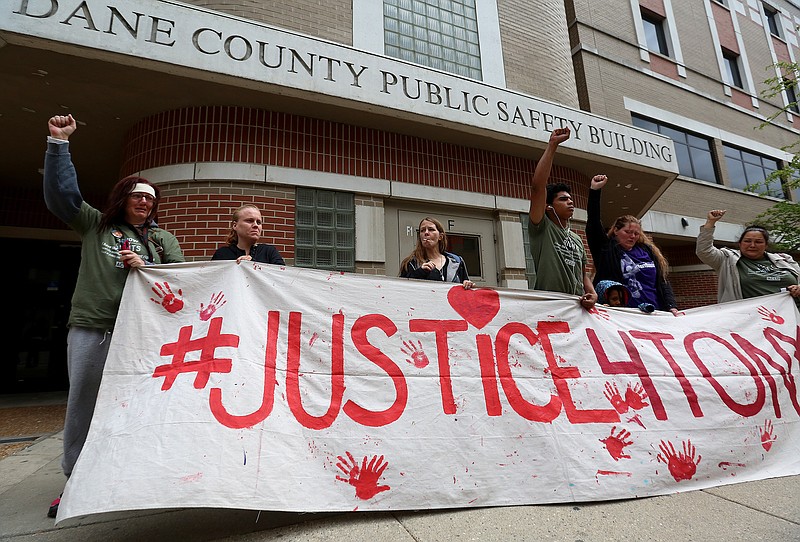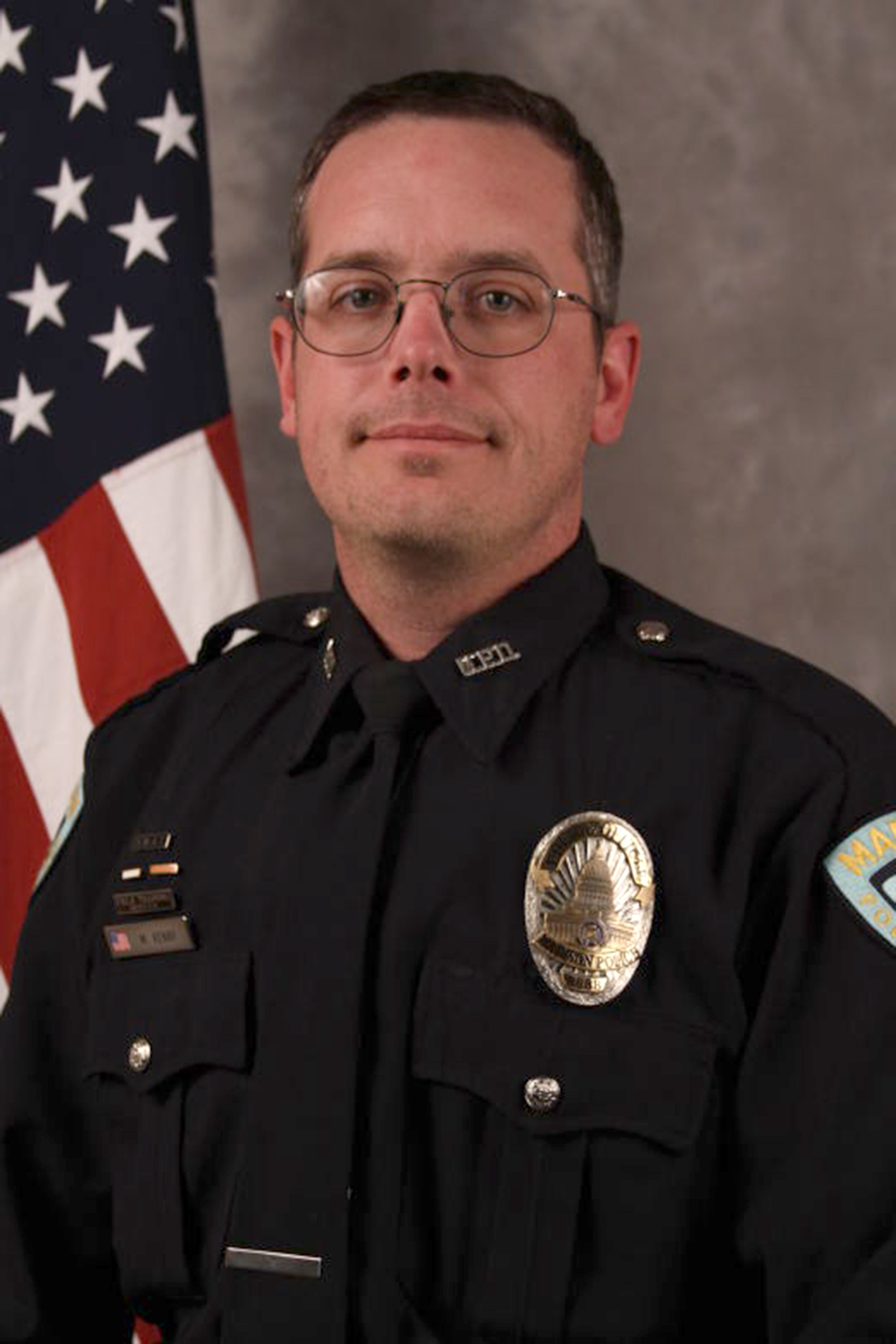MADISON, Wis. -- A white Wisconsin police officer will not be charged for fatally shooting an unarmed 19-year-old biracial man who witnesses say was acting erratically and attacked at least two people, a prosecutor announced Tuesday.
Dane County District Attorney Ismael Ozanne said he won't file charges against Madison Officer Matt Kenny in Tony Robinson's death, which sparked several peaceful protests in the weeks following the March 6 shooting in an apartment house near the state Capitol building.
Ozanne, sweating profusely and mopping his brow repeatedly with a handkerchief, spoke forcefully for some 25 minutes laying out the results of a state Justice Department investigation. He cited three 911 callers whose accounts meshed with that from police. The callers described Robinson as "tweaking," punching a friend, jumping in front of a car, punching one person trying to call 911 in the face and assaulting two people on the sidewalk. One caller feared for both his safety and Robinson's, Ozanne said.
"'Tony is acting insane right now,'" one of the callers told dispatchers, according to Ozanne.
When Kenny reached the apartment building, he heard incoherent yelling, screaming, what sounded like a fist hitting something and items being thrown or breaking. Kenny thought Robinson was upstairs and might be attacking someone, Ozanne said.
The officer ran inside and went upstairs with his weapon drawn, Ozanne said. He announced his presence and almost immediately the 6-foot-4 Robinson punched him in the side of the head, according to Ozanne. Kenny said he fell into the wall, hitting his head, Ozanne said.
Kenny said he was afraid he would fall down the stairs and lose consciousness, Ozanne said. Fearing that Robinson would then take his gun and shoot him as well as whoever was in the apartment, Kenny fired seven shots in three seconds, Ozanne said.
All seven struck Robinson, with every round entering the front of his body, the district attorney said.
"I conclude that his tragic and unfortunate death was the result of a lawful use of deadly police force, and that no charges should be brought against Officer Kenny," Ozanne said.
Toxicology reports confirmed that Robinson had been using hallucinogenic mushrooms, marijuana and Xanax, an anti-anxiety drug, Ozanne added.
The district attorney, who is biracial but identifies as black, stressed his own racial background before announcing his decision. He ended his statement with an implicit plea against violent demonstrations, saying "truth and lasting change does not come from violence, but from exercising our voices and our votes."
Robinson's mother, Andrea Irwin, said she was not surprised by the decision. She said the investigation wasn't thorough enough.
"They could have done a lot. What they didn't do was give my son any respect," she said.
Following the announcement, about 20 people sat in the street in front of the house in Madison where Robinson was shot, chanting "This is what democracy looks like" and "No justice, no peace." Clergy stood around the protesters, protecting them from oncoming cars. No police were at the scene.
Police Chief Mike Koval wrote in a blog post following Ozanne's announcement that Kenny remains on administrative leave pending the findings from an internal investigation into whether he violated any department protocols.
Jim Palmer, Kenny's attorney and the executive director of the Wisconsin Professional Police Association, the state's largest police union, issued a statement praising Ozanne's decision. Palmer noted that Kenny suffered several injuries including a concussion.
A Madison police captain warned city leaders before Ozanne's decision was announced that police had received threats from reliable sources that gang members planned violence against police officers, according to an email sent the leaders provided to The Associated Press.
The city's black community mounted daily rallies for a week after the shooting. The protests were peaceful, although demonstrators had demanded Kenny be fired and charged with homicide.
The state Department of Justice investigated the shooting under a state law that requires outside agencies to lead probes into officer-involved deaths. The state agency handed over its findings to Ozanne on March 27.
The shooting was another in a series of police confrontations that have ignited racial tension across the nation in the past year. Most recently in Baltimore, riots erupted after the funeral for Freddie Gray, a black man who suffered a fatal spinal injury while in police custody. Other high-profile cases of officers killing unarmed black residents include the deaths of Michael Brown in Ferguson, Missouri; Eric Garner in New York City; and Walter Scott in North Charleston, South Carolina.
Six officers involved in Gray's death have been charged, as has the officer who killed Scott. Grand juries declined to charge the officers involved in Brown's and Garner's deaths.

